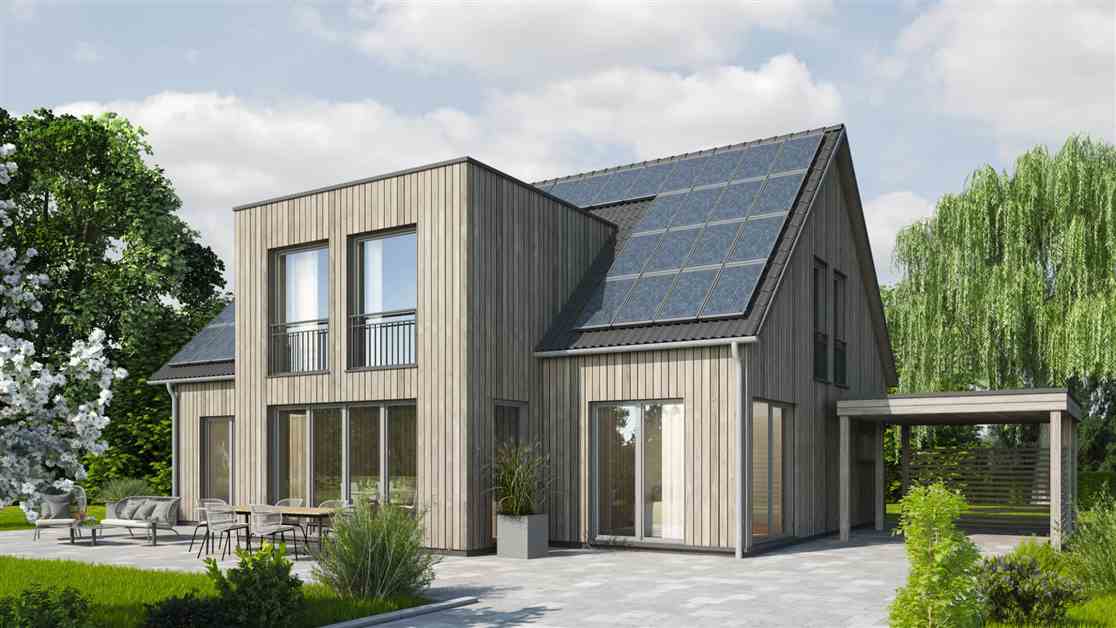Solar Panels: Equip Your Home in 2024
The incentive for self-consumption is an EDF OA aid to encourage individuals to consume the electricity they produce – GettyImages With the constant rise in electricity costs, which have increased by 50% in the last ten years, we are seeing more and more solar panels popping up on the roofs of houses. This leads to a significant reduction in electricity consumption for the residents of these homes, in addition to being a strong ecological gesture. To encourage homeowners to equip themselves, there are advantageous financial incentives. So what are you waiting for to take the plunge?
Have you always dreamed of equipping your home with solar panels? It’s a great idea for the planet and for your wallet, but you need to know where to start… To bring your project to life peacefully, follow the guide.
The most obvious attraction of solar panels is the ability to save energy. This installation represents a medium-term investment that allows you to lower your electricity bill. To optimize your project and avoid scams, it is recommended to seek help from an expert. By being accompanied by a network of solar panel installers, you can achieve up to 60% energy savings.
There are also thermal panels that are used to heat water. They can cover the hot water needs of your home (solar water heater), or even provide some of the heating (combined solar system). Beyond the financial interest, the installation of solar panels will help optimize the energy performance of your home. You will thus contribute to environmental protection through a significant reduction in CO2 emissions from your home.
A self-consumption premium to finance your project The self-consumption premium is an aid set up by EDF OA (Obligation to Purchase) to encourage individuals to consume the electricity they produce directly. It is defined according to the power of the solar installation (between 0 and 100 kWc). Until July 31, 2024, the applied scale is:
• 300 euros per kWc for an installation ≤ 3 kWc;
• 230 euros per kWc for an installation ≤ 9 kWc;
• 200 euros per kWc for an installation ≤ 36 kWc;
• 100 euros per kWc for an installation ≤ 100 kWc.
The self-consumption premium is paid in a lump sum one year after commissioning by Enedis, and its amount is reassessed quarterly. To benefit from it, the installation must meet certain conditions:
• It must be installed on a roof or support structure, with ground-mounted photovoltaic panels not being eligible;
• It must have a power of less than 100 kWc;
• It must have been carried out by an artisan certified RGE (Recognized Guarantor of the Environment).
If everything is in order, this can lead to obtaining a contract with EDF OA, the self-consumption premium, and the sale of surplus at a fixed rate of €0.13 per kWh.
Expert support for photovoltaics Installing solar panels on your home requires a financial investment, as well as time and knowledge. It is therefore recommended to be accompanied by a professional like Hellio, in order to benefit from a dedicated advisor who will take care of:
• Understanding your needs to define an offer adapted to your electricity consumption habits;
• Free technical visit by a qualified RGE artisan;
• Administrative procedures such as requesting specific authorizations from the municipality (urban planning authorization in particular);
• Proposal for connection to the network manager ENEDIS;
• Support for signing with EDF Obligation to Purchase to obtain the self-consumption premium.
This content was created in partnership with Hellio. The editorial staff of BFM IMMO did not participate in the creation of this content.

